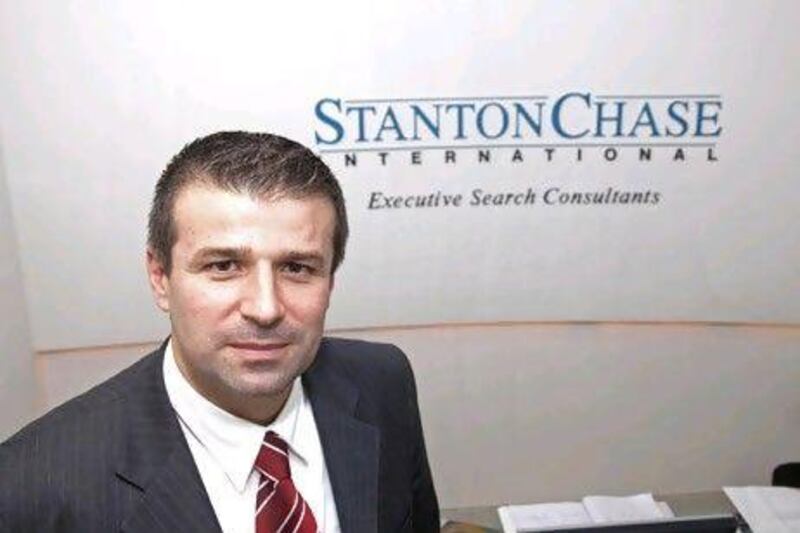Panos Manolopoulos, the vice chairman at the executive search company Stanton Chase International, on how he poaches employees for new jobs and what workers should do when they start feeling restless:
q Why does anyone need a recruiter in this day and age?
a The value we have now is not the search per se, because there are so many search engines and ways to find candidates. The most important thing is to measure and connect the right candidates for the right fit. We're not looking for the best candidate available, or the best fit available. We're looking for the best fit - which is a very big difference.
q Meaning you poach execs from other firms?
a Absolutely. We're headhunters. Even if someone is happy with their job we say, 'Let's wake him up and give him a very interesting proposition.' Our best candidates are so-called passive candidates. We go and tell them, 'There's a very good fit for you.'
q But how do you contact someone without raising red flags at their company?
a I never just call the company and ask for a particular candidate. I trace the candidate through his secretary and have lunch or coffee if it is a blind date. Most of the time I know him.
q Can execs contact you if they are looking for a change?
a After the economic crisis, an increasing number of candidates have been contacting us. Some just lost their job so they are actively looking, or they are bored where they are. Others just keep up relationships with search companies like us.
q Can execs who are still working search on the sly?
a It is very difficult. That's why we always advise candidates not to hunt for a job, only when they are in need of finding one. They should keep their ears and eyes open throughout their career.
q What should execs consider when they submit resumes and bios to you?
a Regardless of how many CVs we have, the very best are the names that come to mind in the very first seven seconds of hearing about the position. Some compare us to matchmakers. In order to do a good matchmaking, you have to know your candidates.
q Which means they need to make an impression with headhunters. How is their search getting harder these days?
a Companies know they have the luxury of finding the best talent. They're making their requirements very complex. Sometimes they're placing pressure on the salary side. They say, 'I know there are a lot of candidates out there; perhaps I can find the best possible candidate with the lowest possible compensation.'
q How else has the landscape changed?
a It's become increasingly common now for companies, especially in the GCC, to ask that people have experience from either a particular market, region or country. Most companies right now are looking for people with international experience, especially in senior positions. At the same time, they need to understand the country or have prior experience there.





